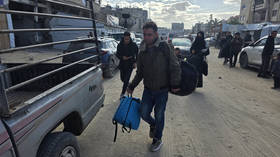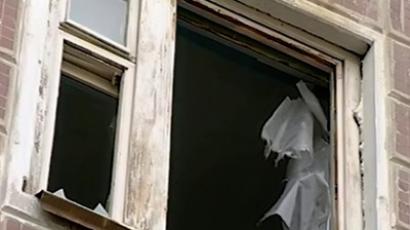Fostering the future through families
For many the city of Kirov, a thousand kilometers from Moscow, is a place where family comes first, as the city is leading the way in a pioneering project to find homes for orphans.
There are thousands of orphans in Russia, but in fact most of them have either parents or relatives outside of the orphanage. These people, however, simply do not want to look after them or cannot be trusted to do so. In Kirov, these children are helped to find a new home.It is hard enough to find a new family for healthy orphans. It is even harder for those who are diagnosed with serious physical, mental or psychological disabilities. But at Kirov's Orphanage Number 1, they seem to manage.While in Russia there are currently 150,000 children who have not been adopted from orphanages, in Kirov, 98 per cent of all orphans find a new family before they turn six.“Many orphanages exist by themselves, in isolation. We are reaching out to the potential parents and the authorities and working with them,” deputy director Svetlana Klekovkina explained to RT.Their first course of action is to try and place the children back with their biological parents, who often give them up, scared off by the diagnoses. The orphanage shows that with the right care, these children can lead normal lives. The parents have to prove their attitude has changed.For other potential adopters, there are educational courses and ongoing medical support – all basics in the West, but hardly universal in Russia. Yet the staff say these are not the main reasons for their success.“It doesn't matter how good the facilities are here, or what care the children receive. We – all of the staff here – still know that an orphanage is no substitute for a family,” said Svetlana Klekovkina.A quick straw poll shows as much.“There are three of us here – me and my two sisters. We really want to be adopted by the same family, but not everyone wants three kids,” explained little Egor, who lives in the orphanage.If the orphanage's track record is anything to go by, they soon will find a family.The efforts they make to find new homes for these children are commendable, but then there is only so much the orphanage can do to solve the problem of adoption.Tatyana Kostina not only adopted four children from Orphanage Number 1, but also sits on an adoptive parents committee.“I think the problem is the social attitudes towards these children. It's not a case of money – we are an average family. All the state support is really there, you just have to love the children themselves,” said Tatyana.Alyona, who is 14, says she was betrayed by her parents; and those who promised to adopt her and never did. But then she finally found a home.“In the home, you are always just a part of a group. But here in the family, you are needed by someone. There is more tenderness, more love. I am happy,” Alyona told RT.If the Kirov model catches on elsewhere, Russia has reason to hope for a brighter future.














